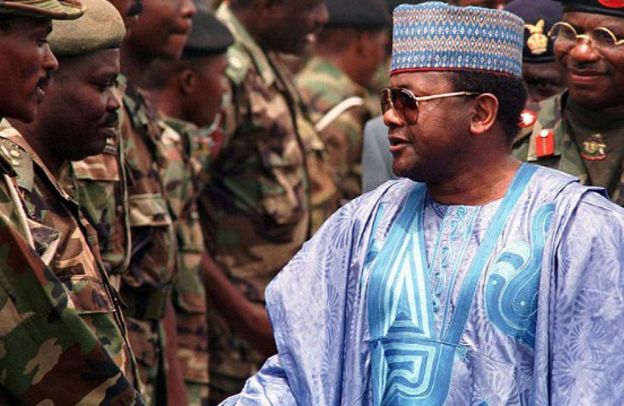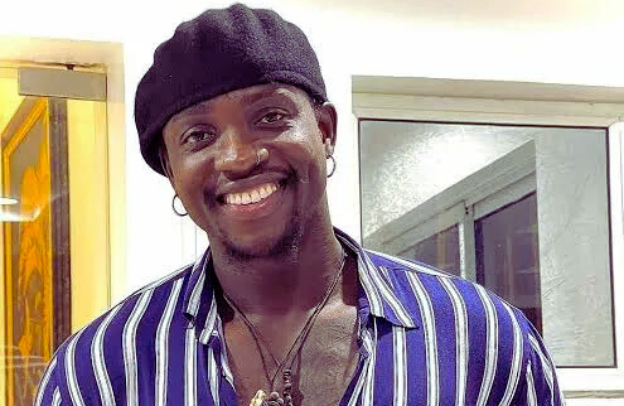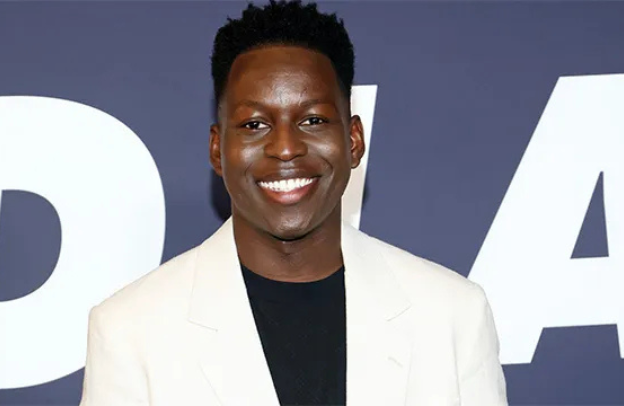General Sani Abacha, Nigerian Military Head Of State – 1993 To 1998

General Sani Abacha was a prominent Nigerian military officer and politician who served as the de facto President of Nigeria from 1993 until he died in 1998. Like most of the younger generation of Nigerians who did not directly suffer from the brutality of European colonialism, Abacha was only 17 years old when Nigeria gained her independence from Britain, and no one could have predicted that he was going to be the head of that country.
Want to learn more about the power of storytelling? Start by DOWNLOADING a free chapter of The Storytelling Series: Beginners’ Guide for Small Businesses & Content Creators by Obehi Ewanfoh.
Alhaji Abacha Maiduguri, his father is said to have served as the president of the Northern Traders Amalgamated Union, a unifying organization encompassing all business and trade unions in the northern region. Notably, it is believed that Alhaji Abacha played a crucial role in negotiating a more favorable trade agreement for northern traders during the 1950s when they faced a trade monopoly of Syrian and Lebanese traders. And of his mother, very little is known about her.
The wife and former first lady of Sani Abacha is Hajiya Maryam. She was born in Kaduna on March 4, 1947. She is a native of Borno State, the daughter of Alhaji Sheikh Mahammad Jidah.
As of the origin of General Sani Abacha, he is from the Kanuri ethnic group. The Kanuri people are a large African ethnic group primarily residing in the territories once occupied by the Kanem-Bornu Empires, spanning Niger, Nigeria, Sudan, Libya, and Cameroon. The term “Kanuri” encompasses various subgroups and dialect groups, and some might differentiate themselves from the broader Kanuri identity.
Early childhood
Sani Abacha’s early life and childhood period before his political career are not extensively documented. However, here is some general information about his background.
Sani Abacha was born on September 20th, 1943, in Kano, Nigeria. Growing up, Abacha experienced life in a region with a rich cultural heritage and a history shaped by the Kanem and Bornu Empires. Although General Sani Abacha eventually rose to lead the largest military in Africa, he may have been very quiet if not outrightly a reserved child, growing up in Kano.
While specific details about his childhood are limited, it is known that Abacha received his early education in Kano. He later pursued a military career, joining the Nigerian Army in 1963. His involvement in the military marked the beginning of his journey toward becoming a prominent figure in Nigerian politics.
His rise in the Nigerian Military
Now, if you understand that politics is sometimes nothing more than the struggle over control of people and resources, then you should know that the few who want to control other people need to devise a way to do this effectively. And one of the most successful strategies for this has remained “Divide and conquer”. For example, check out “The Art of War”, by Sun Tzu, a brilliant Chinese military general, strategist, and philosopher who lived in 250 BCE.
For more than 4,000 years, the tactic of “divide and conquer” has proven to be a powerful military strategy. This approach has been utilized by various historical powers, including the Egyptians, Julius Caesar in his military campaigns, the British Empire, and much more.
In the era of colonialism, Nigeria was perfectly partitioned into three regions, which closely aligned with the territories inhabited by the largest ethnic groups. And for every given occasion, the lines of division among these different regions have been exacerbated by the colonialists so they could control the people. And what is known in Nigeria and many other African countries as tribalism, religious tension, and the north and south dichotomy are perfectly explainable within this ancient principle of population control and manipulation.
In the North of Nigeria are Hausa and Fulani people who are predominantly Muslim, the Yoruba people are in the West, largely Christian, and the Igbo people in the East, also predominantly Christian. However, in 1967, after a series of events, the Eastern region seceded from Nigeria and established the Republic of Biafran. The resulting civil war lasted until 1970, leading to the death of over a million people.
It was during the 1967 conflict that Abacha assumed the rank of captain. Over the next three years, he steadily advanced through the ranks of the Nigerian Army, progressing from platoon and battalion commander to becoming the commander of the training department within the 2nd Infantry Division. By 1969, Abacha had achieved the rank of major.
In 1972, following the conclusion of the war and the restoration of national boundaries as one Nigeria, Abacha was promoted to the position of lieutenant colonel. During the subsequent years, he received further promotions, attaining the rank of colonel in 1975 and brigadier in 1980. All these were preparing him as he aspired for more power in the military and more control of Nigeria’s people and their resources.
Just so we might clear ourselves of the illusion that Abacha suddenly rise to power in Nigeria, consider that he received a lot of training from different prestigious military and tactical institutions both in Nigeria and overseas. All these are to prove the point that it is difficult to rise above mediocrity and ordinariness until you first refine yourself.
Abacha’s educational journey in the United Kingdom commenced with his enrollment at the MONS Defense Officers’ Cadet Training College in Aldershot in 1963, followed by his attendance at the School of Infantry in Warminster in 1966 and 1971. Returning to Nigeria, Abacha pursued further knowledge at the Command and Staff College in Jaji in 1976 and later at the National Institute for Policy and Strategic Studies in Kuru, Jos, and that was in 1981.
Notably, in 1982, he concluded his educational pursuits by participating in the Senior International Defense Course, held in Monterey, California. Abacha’s dedication to continuous learning and acquiring new skills allowed him to expand his expertise and broaden his horizons across various military institutions.
Rise to power grip in Nigeria
Having risen through the ranks of the Nigerian military, Abacha eventually became a highly influential figure in the government. In November 1993, he took power in a military coup, overthrowing the interim government that had been put in place, following the annulment of the presidential election held earlier that year.
During his time in power, Abacha was known for his authoritarian rule and strong grip on the country. He implemented various controversial policies, cracked down on agitators, and suppressed all the political opposition in the country.
His administration was characterized by what has become a norm for military regimes, several of them in Nigerian history – allegations of human rights abuses, corruption, and the suppression of democratic institutions.
Abacha’s tenure was marked by a centralization of power and the accumulation of vast wealth by him and his family. It is estimated that billions of dollars were embezzled from the Nigerian treasury during his rule. At the same time, he faced many international condemnations and sanctions from several countries due to his political actions.
What defined his leadership?
General Sani Abacha’s leadership was defined by several key factors that left a lasting impact on Nigeria. These defining characteristics shaped his regime and contributed to the controversy surrounding his rule. Here are some key elements for consideration:
- Authoritarian Rule: Abacha’s leadership style was marked by a strong authoritarian approach. He wielded extensive power and control over the government, military, and key institutions in the country. Political activists, journalists, and opposition figures were often subjected to harassment, arbitrary arrests, and even violence. His regime was characterized by a centralization of authority, with decisions primarily emanating from him.
- Alleged Human Rights Abuses: During Abacha’s tenure, numerous allegations of human rights abuses surfaced. Reports of torture, extrajudicial killings, and the silencing of critics were prevalent, painting a grim picture of the state of human rights under his regime. These abuses contributed to the international condemnation of his leadership.
- Corruption and Embezzlement: One of the defining features of Abacha’s leadership was the rampant corruption and embezzlement of state funds. It is estimated that billions of dollars were siphoned off from the Nigerian treasury during his rule, leading to economic setbacks and a loss of public trust. Abacha and his associates were accused of amassing significant personal wealth at the expense of the Nigerian people.
- Stability and Strategic Policies: Despite the controversies surrounding his leadership, Abacha’s supporters argue that he brought a sense of stability to Nigeria during a turbulent period. They credit him with implementing strategic economic policies that helped stabilize the economy and maintain infrastructural development. However, the legitimacy of these achievements remains debatable due to the corruption and human rights concerns overshadowing his regime.
His promise of returning Nigeria to democracy
Despite numerous pledges to usher in a return to democratic governance in Nigeria, General Sani Abacha deviated from his promises and instead employed undemocratic measures throughout his regime. Notably, he imposed a ban on all forms of political activities, purged a significant number of military personnel, exerted control over the media, and established a personal security force consisting of approximately 3,000 individuals.
That was obviously a waste of public funds for personal interest while a large portion of the Nigerian population remained in penury.
While publicly supporting regional initiatives like the Economic Community of West African States (ECOWAS) and its military wing, the ECOWAS Monitoring Group (ECOMOG), in their endeavors to restore democracy in Liberia and Sierra Leone, Abacha harshly suppressed political activists within Nigeria itself.
This included the imprisonment of prominent figures such as Moshood Abiola, the winner of the annulled 1993 presidential election, and Olusegun Obasanjo, a former military leader. Additionally, acclaimed Nigerian Nobel laureate Wole Soyinka faced treason charges, despite having chosen to leave the country voluntarily.
One of Abacha’s most infamous actions involved the imprisonment, trial, and subsequent execution for treason of Ken Saro-Wiwa and other activists from the Ogoni community. These individuals had raised concerns about the environmental exploitation perpetrated by multinational petroleum companies operating in their region.
So, General Sani Abacha completely strayed from his initial commitment to restoring democracy. Instead, he resorted to undemocratic practices. His suppression of political opposition, imprisonment of prominent figures, and brutal military actions against dissidents cast a dark shadow over Nigeria’s democratic aspirations during his tenure.
His death and legacy
General Sani Abacha died suddenly on June 8, 1998, at the age of 54. The circumstances surrounding his death remain a subject of speculation, with some sources claiming he died of a heart attack and others suggesting foul play. After his death, Nigeria transitioned to civilian rule, and efforts have been made to recover the funds stolen during his regime.
General Sani Abacha’s true legacies are a subject of ongoing debate and contention. While perspectives on his leadership might differ, several key legacies attributed to him can be identified:
- Authoritarian Rule and Suppression of Democracy: Abacha’s regime left a legacy of authoritarian rule and the suppression of democratic institutions in Nigeria. His strong-handed approach and curtailment of civil liberties hindered the growth of democratic practices and institutions, impacting Nigeria’s political landscape for years to come.
- Regional Engagement and Pan-Africanism: Abacha actively engaged in regional and Pan-African affairs, playing a role in resolving conflicts and advocating for African economic integration. His involvement in regional peacekeeping efforts left a mark on Nigeria’s foreign policy and demonstrated the country’s aspirations for leadership on the African continent.
I repeat that General Sani Abacha’s legacies remain a mixture of negative and contested aspects, such as authoritarian rule, human rights abuses, and widespread corruption, along with certain infrastructural and regional engagements.
These legacies continue to shape Nigeria’s political, social, and economic landscape, highlighting the ongoing challenges faced in addressing the negative consequences of his regime while striving for progress and development.
Want to learn more about the power of storytelling? Start by DOWNLOADING a free chapter of The Storytelling Series: Beginners’ Guide for Small Businesses & Content Creators by Obehi Ewanfoh.





